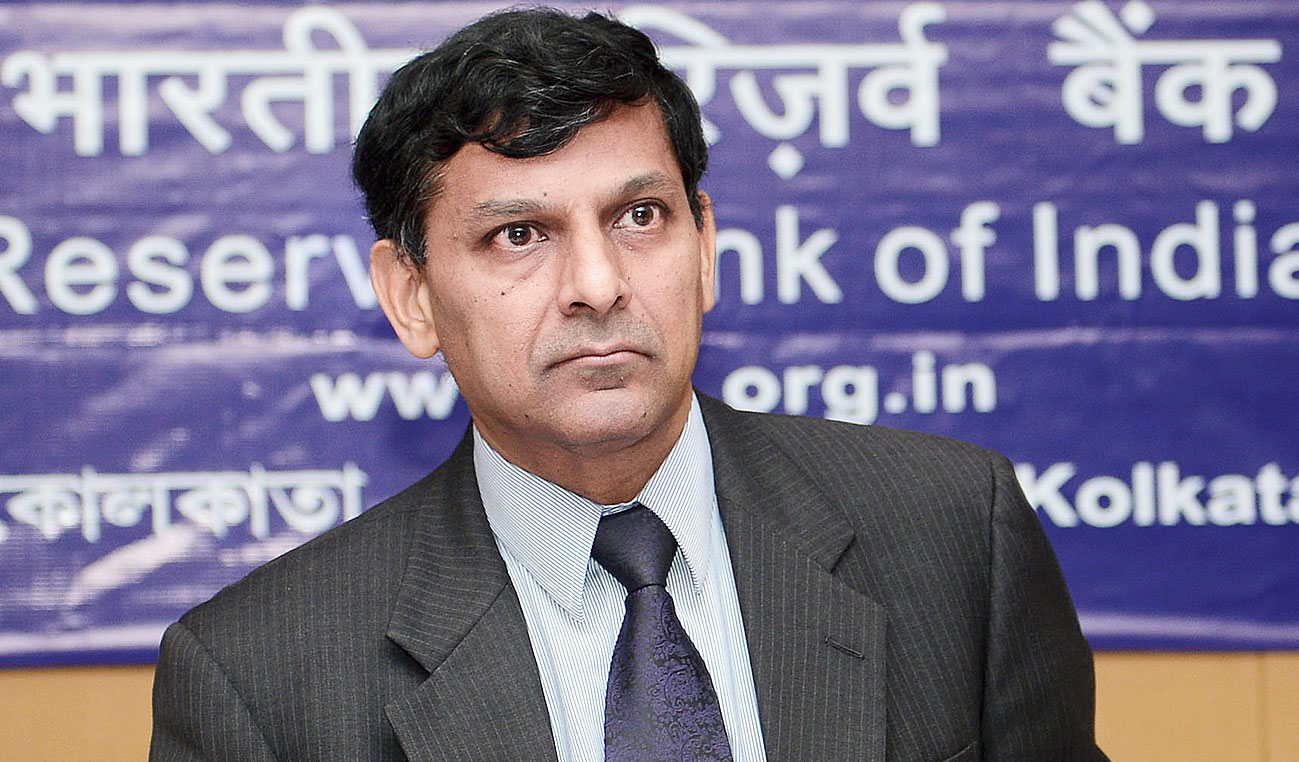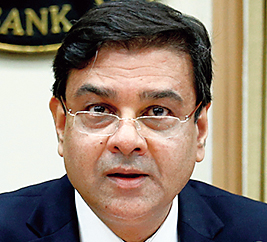The Central Information Commission has rapped the Reserve Bank and the Prime Minister’s Office for refusing to release the list of wilful bank-loan defaulters and former RBI governor Raghuram Rajan’s letter on bad loans, saying such stonewalling encourages “financial frauds” like those seen recently.
“If the RBI does not respect the (Supreme Court) orders and denies the citizens right to information, it will result in perpetuation of (a) financial regime of secrecy that (has) potential enough to facilitate financial frauds and allow fraudulent rich and influential business persons to flee the country, as witnessed in recent times,” information commissioner Sridhar Acharyulu said in a 66-page order.
The commission had earlier issued a notice to RBI governor Urjit Patel for “dishonouring” a Supreme Court judgment and the info panel’s own directive on the disclosure of the list of wilful defaulters.
In its latest order, it pulled up the PMO for ignoring its earlier directive to make public Rajan’s letter on “grounds which are not legal, which is unfortunate”.
“If there is any objection based on any exception, the PMO should have pleaded such provision and justify their denial,” Acharyulu said.
He again directed the PMO to reveal the names of the defaulters, the action taken for the recovery of loans in response to Rajan’s letter, and the policy, if any, about recovery from defaulters including high-profile ones.
Acharyulu was hearing a plea from Right to Information applicant Sandeep Singh, who had sought the details of bank loan defaulters.
The PMO has a “moral, constitutional and political duty” to tell citizens who the defaulters are and what action has been taken to recover the huge loans that banks had advanced them from the taxpayer’s money, he said.
Acharyulu accused the PMO of creating “procedural tangles to delay and deny” information. He castigated the central bank for saying “in advance” that it “will never give such information” instead of justifying its refusal of this particular application in the light of the exemption clauses in the act.
He said the RBI had declared several categories of information as “not disclosable” as part of its “disclosure policy” and had described the exceptional clauses under the RTI Act as “enabling” provisions.
Acharyulu added that non-disclosure in the name of a “disclosure policy” contradicted the various office memorandums and guidelines issued by the department of personnel and training under the RTI Act.
“It is against the RTI Act, the collective intention of Parliament, (and is an) affront
to democracy, reflecting disrespect to the Supreme Court’s directions in RBI vs Jayantilal N. Mistry case,” he said.
“The RBI has a strong legal team with experienced legal experts and meritorious graduates from national law schools, yet has (the) audacity to openly defy (the) RTI Act, CIC directions and judgment of the Supreme Court.”
Acharyulu rejected the PMO’s argument that Singh had filed his RTI application with the directorate-general
of employment and training and that no copy was forwarded to the PMO by the applicant or any other public authority.
“The PMO contended that as the original RTI application (and the) first and second appeals were not filed with the PMO, the direction to provide information was not maintainable and hence the compliance question does not arise,” he said.
“The commission cannot agree with this kind of attempt to deny the substantive part of information access by unreasonable procedural interpretations without any legal basis. There is no provision in the RTI Act that prevents the information commission from directing any public authority to provide information if that is possibly available with them.”
“The stand taken by the PMO in this case will not serve any public interest, and compel the citizen to start his effort ab initio, by filing an RTI request with PMO, treating as a separate unconnected public authority and reach the ultimate level at the CIC or up to the Supreme Court, if the government prefers to litigate with the citizen and ultimately it has to give that information,” he said.
“This was not the intention of Parliament in passing the RTI Act, 2005, that aimed at creating a practical regime and not procedural tangles to delay and deny access to public information.”
As for the RBI, Acharyulu said: “But any public authority cannot declare that it will never give such information as declared by the RBI. Exceptional provisions under the RTI Act cannot straightaway enable a public authority to deny in advance.”
Acharyulu said that in spite of the Supreme Court directive that Section 22 of the RTI Act would override the RBI Act and other acts, the central bank had quoted those acts and declared it would not reveal the information.
Section 22 says the RTI Act’s provisions would override “anything inconsistent therewith contained in the Official Secrets Act… and any other law for the time being in force or in any instrument having effect by virtue of any law other than this act”.
“The RBI has totally ignored the provisions of the RTI Act,” Acharyulu said.
Acharyulu urged parliamentary committees such as the public accounts committee, committee on finance and committee on estimates to deliberate the issues raised in this case as they too are seized of such matters.
“The commission directs the office of this CIC to present the copy of this order to concerned officers of Parliament who are responsible for placing such papers before respective committees within one week from the date of issue of this order,” he said.













